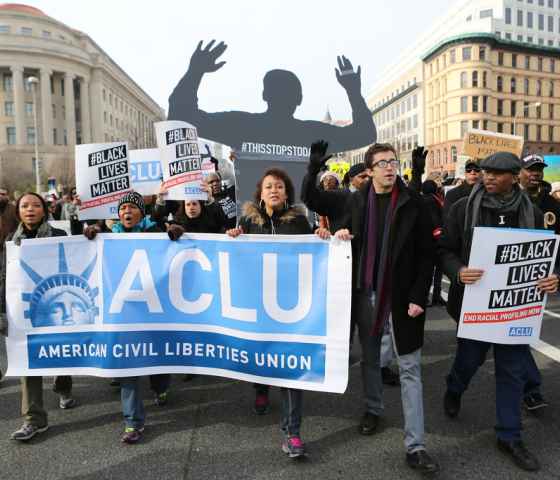By Andres Wallace, Staff Attorney, ACLU of Mississippi
Imagine for one second—driving down the street, when suddenly (or not so suddenly) you happen upon a police roadblock. You know that you have not had any alcohol. You approach the roadblock—confident that the roadblock will be brief. However, this is no ordinary roadblock. This is a No Refusal roadblock—one wherein motorists who are suspected of driving impaired and subsequently refuses sobriety tests could, upon issuance of a warrant by a judge, be ordered to submit to a blood test
According to the Clarion-Ledger, on September 5 and 6, eight Mississippi counties participated in the “No Refusal” weekend campaign. The Clarion Ledger also reported that there were 152 DUI arrests and 31 blood samples taken.
Now, if you are anything like me, you are asking yourself—can they do that? Are we sure this happened in the United States? The answer to both of those questions is, unfortunately, yes. Naturally, you hear that the “No Refusal” weekend campaign is legal and you then ask yourself—how can that be legal?
Recently, the United States Supreme Court has ruled on a case that essentially establishes the proper procedures that an officer must follow in order to be able to draw a driver’s blood.
Before, I discuss the legality of the “No Refusal” weekend campaign, I would like to say that I understand that driving under the influence is a problem in the state of Mississippi. I also realize that DUI related accidents have been rising in the state over the past few years. However, although drivers driving under the influence continue to be a problem—we as a society must be careful of the liberties that we sacrifice in order to solve a problem, such a DUI.
In order to fully understand the “No Refusal” campaign, let’s discuss the legality of sobriety check points. The United States Supreme Court has established that a police checkpoint set for the purpose of identifying intoxicated driver was consistent with the Fourth-Amendment. In essence, the Supreme Court established that a checkpoint established for identifying drunk drivers is constitutional if properly conducted.
So, now that we have established that a sobriety checkpoint is legal, one question comes to mind— what gives an officer the right to draw an individual’s blood? Well, in 2013 the United States Supreme Court, in Missouri v. McNeely, established that a warrantless blood draw is a violation of one’s Fourth Amendment rights; however, the Court also noted that “other factors present in an ordinary traffic stop, such as procedures in place for obtaining a warrant or the availability of a magistrate judge, may affect whether the police can obtain a warrant in an expeditious way.” At a No Refusal checkpoint, judges are available to sign warrant at the request of the officer.
The Mississippi Supreme Court has held that the Fourth Amendment prohibition against unreasonable search and seizure applies when an intrusion into the body—such as a blood test—is undertaken without a warrant, absent an emergency situation. In ruling on McNeely, the Court has indirectly given justification for the drawing of blood at a traffic stop—if a warrant is properly obtained.
At the No Refusal checkpoints, the police are supposed to rely on their suspicion of drunkenness as the probable cause for a search warrant. If a citizen is stopped at a No Refusal Checkpoint but shows no sign of intoxication, there would be no probable cause for the issuance of a warrant. Without probable cause, no warrant should be issued. In essence, the Judge will then have the final say as to whether there is probable cause to conduct a blood draw. If however, a warrant is issued where no probable cause exists, there would be a clear Fourth Amendment violation.
As much as it pains me to say this, if conducted pursuant to a valid warrant, the drawing of an individual’s blood at a “No Refusal” checkpoint would be constitutional.
Although No Refusal campaigns are constitutional, I am still very concerned about an individual’s inability to refuse. If I refuse to take a breathalyzer test, my license should be suspended—that should be the price that I pay for refusing to take the test. Why am I being forced to submit to a bloodtest? There seems to be other means of achieving the goal of deterring drivers from driving intoxicated. Drawing blood seems like an extraordinary measure—where other less intrusive methods are available.
Additionally, I am critical of the use of a refusal to submit to a breathalyzer as the basis for probable cause. I also wonder what the cost would be to the taxpayer for these tests, and how many of them would come back positive. I believe that these issues will become more contentious as more states adopt their own versions of the No-Refusal campaign.
If you come upon a checkpoint, exhibit no signs which would trigger the officer's assertion of probable cause and are still forced to submit to the invasion of a blood draw please contact us at office@aclu-ms.org or 601-354-3408.
To help us defend your rights and fight government intrusion: Sign up for action alerts, follow us on Twitter, and like us on Facebook.
